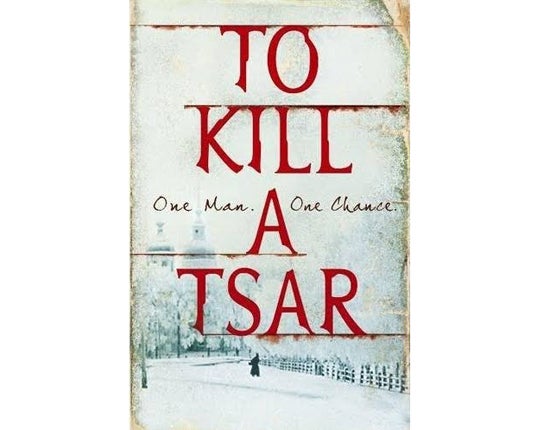To Kill a Tsar, By Andrew Williams
Popular prose for politics

Andrew Williams's background is in television journalism and, while making a BBC series on the IRA, he met one of their successful bombers, who had destroyed the centre of Derry.
Williams asked why he had laid waste to his own city, and the cool reply was "because the IRA instructed me to do so". In To Kill a Tsar, Williams has translated this chilling encounter into seething revolutionary Russia, and has suggested telling parallels between the different cultures, despite nearly a century between the Russian terrorists' activities and the IRA's.
The business of compromised characters with difficult moral choices to make in fraught situations clearly fascinates this writer. It was the fulcrum of his Second World War-set debut novel, The Interrogator, which synthesised historical writing with the excitement of the thriller in the manner of Robert Harris's Enigma. Williams has come to grips even more authoritatively with the same notion in To Kill a Tsar.
This is a morality play set in a deftly realised 19th-century St Petersburg; the protagonists are Dr Frederick Hadfield, making money from the privileged Anglo-Russian gentry, and a femme fatale, Anna, who works for pitiless revolutionary groups to overthrow the corrupt elite.
In the summer of 1879, Russia threw up the first significant terrorist cell of the modern era, The People's Will. An energetic war of bombings and assassinations was waged on Alexander II and his government (the parallels here are not just with the IRA but with al-Qa'ida). Williams presents Frederick as off-balance in his professional life and ripe for suborning by Anna, who seduces him into a desperate game in which he becomes the target of both the revolutionaries and the tsar's equally implacable police.
As well as Dostoyevsky's The Devils, there are echoes here of Conrad in the unsparing picture of terrorist cells; but Williams, despite his well-turned prose, is essentially a popular writer, plying these themes in straightforward fashion. The book is none the worse for that, and the bravura of the storytelling registers strongly, even if the moral dilemmas of hero and heroine might have been more thoroughly excavated. Nevertheless, To Kill a Tsar is proof that Williams is the real thing: a writer who can marry popular genres to the sophisticated treatments of political arguments.
Subscribe to Independent Premium to bookmark this article
Want to bookmark your favourite articles and stories to read or reference later? Start your Independent Premium subscription today.

Join our commenting forum
Join thought-provoking conversations, follow other Independent readers and see their replies